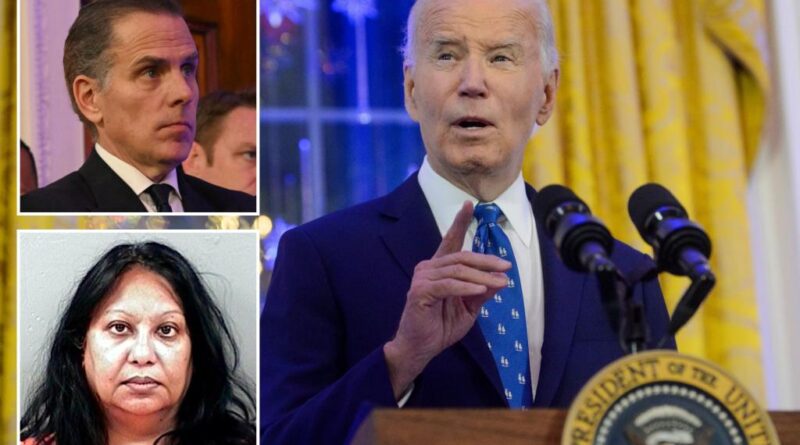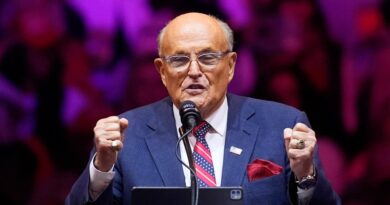Hunter’s Pardon Is Troubling, but Biden’s ‘Merit’ Mercy Is Even More Concerning

The pardons issued by Joe Biden at the last minute have sparked outrage — and the one for his son Hunter may not even be the most egregious.
While these pardons are alarming on their own, collectively they highlight a significant issue. Pardons should address individual cases separately; they are not intended for policy-making.
First off: Wow, some of these pardons are absolutely astonishing, including Biden granting clemency to the corrupt judge involved in the “Kids for Cash” scandal. This former Pennsylvania judge, Michael Conahan, accepted bribes in exchange for unjustly sentencing children to for-profit youth prisons, enriching himself while simultaneously benefiting the prison system.
Approximately 4,000 juvenile convictions had to be overturned following these shocking revelations.
Biden also granted clemency to Rita Crundwell, an Illinois local official who executed the largest municipal fraud scheme in US history.
Additionally, he pardoned Meera Sachdeva, a Mississippi doctor who committed extensive Medicare fraud, notably by providing cancer patients with diluted treatments.
She even reused needles, contributing to at least one patient becoming HIV positive.
Biden’s decision to release a Chinese national convicted for truly horrific child pornography crimes was made as part of a distinct prisoner exchange with the authoritarian regime in Beijing.
These pardons and commutations are undeniably indefensible — which is precisely why Biden and his team aren’t trying to justify them.
Instead, they claim that the president did not evaluate these actions on an individual basis, but rather relied on a broad criteria (in this instance, nonviolent, non-sexual offenders eligible for house arrest during COVID).
And therein lies the core issue.
Properly understood, pardons should not be used for policy-making.
Biden could take a note from his former boss, Barack Obama, who granted over 1,700 pardons and commutations as he left office, primarily to federal drug offenders.
I support the legalization of drugs and would prefer a world without federal drug prisoners, but that decision is not mine — nor is it the president’s.
The authority to make such decisions rests with Congress. While it may feel repetitive, this truth seems to be lost on our political leaders: it is the job of lawmakers to create the laws.
The United States has numerous problematic laws. I would like to see reforms made.
The president can suggest changes to laws and veto proposals he disagrees with, but he cannot genuinely override laws enacted by Congress — he is obligated by oath to faithfully implement those laws.
An action by the president can be legal yet still constitute an abuse of power. Imagine a president believing that taxes are excessively high who proclaims, on his inauguration day, that he will pardon Americans who fail to fully pay their income taxes throughout his term.
Envision a president who deems OSHA regulations excessively burdensome and subsequently pardons all violators — or who misuses another executive power to declare that his administration will not investigate or prosecute such violations.
The president operates within his granted powers to pardon whom he chooses or to prioritize and deprioritize executive actions.
Nevertheless, this does not legitimatize the misuse of those powers, even if such misuse is not illegal.
Pardons should function on an individual basis and in exceptional circumstances: A wrongdoer who has shown significant reform or who has provided notable service may have their sentence reduced or criminal record cleared.
Clemency can also be granted out of compassion for offenders who are elderly or ill. Pardons are not intended as a means to settle policy disagreements between the president and Congress.
If Democrats had any shred of self-respect — or genuine political instincts — they would censure, if not impeach, Biden while there is still time.
This serves as a lesson for Republicans as well: Donald Trump has indicated his intention to pardon those found guilty during the Jan. 6 riot.
While there could be a justification for clemency in specific instances, a blanket pardon would effectively nullify the law, transforming the riot into a post hoc legalization rather than an act of mercy.
The fact that the rioters believed they were acting in Trump’s name makes this circumstance particularly grim, yet even if Trump had no involvement in the events, it remains outside the president’s right to deem categories of individuals exempt from criminal law.
Do not expect the cowardly Republicans in Congress to voice any concerns about this, no matter how loudly they criticize Biden’s pardons today.
Congressional Republicans are merely content to act as subservient courtiers to the quasi-monarchy that the presidency is evolving into. However, if Congress fails to uphold its fundamental power — the power to create laws — who will?
Trump’s inauguration is just 29 days away. Democrats should consider the precedent they want to set in the meantime. They can either embrace a crude interpretation of Woodrow Wilson-ism — “The president is at liberty, both in law and conscience, to be as big a man as he can” — or stand in defense of the Constitution and Congress, and consequently for themselves.
They must set an example with Biden. No one can say he doesn’t deserve it.



